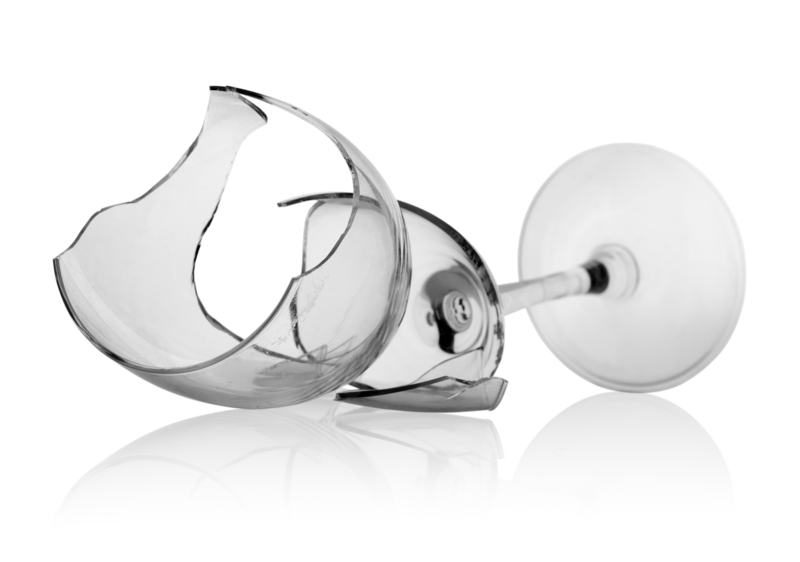Preserving the Lifespan of Your Unused Freezer
Posted on 26/06/2025
Preserving the Lifespan of Your Unused Freezer: Essential Maintenance and Storage Tips
Freezers are invaluable appliances in many households and businesses, reliably keeps food preserved for extended periods. But what about when you have a freezer that isn't in regular use? Whether you're planning a move, have a seasonal freezer, or simply upgraded to a bigger model, understanding how to preserve the lifespan of your unused freezer is crucial to maximize your investment and ensure it works like new when you need it again.
Why Is Preserving Your Unused Freezer Important?
Many people assume that if you aren't using a freezer, you don't need to maintain it. This is a costly mistake. When left idle without proper care, a freezer can deteriorate quickly, leading to costly repairs or the need for premature replacement. Maintaining your unused freezer not only saves money but also helps protect the environment by extending its operational life and reducing electronic waste.

Comprehensive Steps for Maintaining an Unused Freezer
1. Deep Clean Before Storage
To significantly extend the life of your unused freezer, thorough cleaning is essential. Food spills, crumbs, and moisture can promote mold, mildew, and unpleasant odors if left unchecked.
- Unplug the freezer: Always disconnect from power first for safety.
- Remove all contents: Discard expired items and transfer usable food to another appliance.
- Take out shelves and drawers: Wash these with warm, soapy water and leave to dry completely.
- Clean the inside with a baking soda and water solution to neutralize odors and bacteria.
- Dry thoroughly: Any residual moisture can lead to mold and corrosion.
2. Defrost Properly
Ice build-up can cause unnecessary strain on your freezer even when unplugged. Defrosting the unit before storage prevents this issue.
- Allow ice to melt naturally or use bowls of hot water to speed up the process.
- Wipe up any liquid immediately to prevent internal water damage.
3. Store Your Freezer With Its Door Open
One of the common mistakes in preserving an unused freezer is closing the lid or door tightly. This creates a sealed, moist environment where mold and odors flourish.
- Keep the freezer door ajar by wedging a towel or using the manufacturer's locking mechanism for ventilation.
- This prevents musty smells and mold growth, ensuring a fresh appliance when you're ready to use it again.
Location Matters: Where to Store Your Unused Freezer
The storage environment plays a pivotal role in protecting the lifespan of your freezer. Harsh settings can hasten wear and tear, even when the machine isn't running.
- Cool, dry places are ideal.
- Avoid damp basements, garages with extreme temperatures, or direct sunlight.
- Airflow around the unit helps deter rust and component degradation.
If storing in a garage or outbuilding is unavoidable, consider using a weatherproof cover and periodically checking for moisture or rodent activity.
Protection Tips for Specific Climates
- Humidity: Use desiccant packs or moisture absorbers inside and around the freezer to prevent internal condensation.
- Extreme Cold: Freezers are built to store in cold, but internal components can become brittle if exposed to freezing temperatures for months. Moderate insulation can help.
- Heat: Avoid direct sun or locations exceeding manufacturer's storage ratings. High temperatures can warp components and degrade seals.
Electrical and Mechanical Considerations
Should You Unplug or Leave Plugged In?
If your freezer will go unused for more than a few weeks, it's best to unplug it. This saves electricity and prevents the motor from running unnecessarily. However, be sure to follow all the cleaning and drying steps first.
Compressor Maintenance
While the compressor isn't running while unplugged, ensuring there's no dust buildup on its coil and surrounding area can minimize risk of corrosion. Brush off dust or vacuum around these components before storing.
Cord and Plug Storage
- Wrap the power cord loosely and secure it to avoid tripping or damage.
- Do not tuck the plug or cord under the freezer, as this can cause wire fatigue.
- Check for any fraying or damage before later reconnecting to the mains.
Maintain Seals and Gaskets for Longevity
The rubber gasket or seal around your freezer's door is crucial for a proper airtight closure during use. When in storage:
- Clean the gasket with mild soap to remove dirt, then dry thoroughly.
- Condition the seal with a small amount of petroleum jelly to prevent cracking and sticking.
- Check that it's not pinched or deformed as you keep the door ajar.
Preventing Pests and Infestations
Your idle freezer can become an attractant for rodents, insects, and other pests in garages, basements, or sheds.
- Ensure all food smells and residues are thoroughly cleaned from both the interior and exterior.
- Place natural pest deterrents nearby, such as peppermint oil-soaked cotton balls.
- Consider a pest-proof cover if in a known issue area.
Checking on Your Unused Freezer During Prolonged Storage
Periodic Inspections
For long-term freezer preservation, regular checks are essential:
- Every 2-3 months, inspect for mold, odor, moisture, or signs of pests.
- Wipe down any dust, and replace desiccant packs if used.
- Re-verify that the freezer is properly ventilated.
How and When to Restart Your Unused Freezer
When it's time to bring your unused freezer back into action, a few steps will ensure safe, efficient operation:
- Open the door and inspect the interior for dust, pests, or odors.
- Clean again if needed, especially if it smells musty.
- Plug in and allow the freezer to run empty for several hours.
- Check for solid cooling and listen for unusual noises.
- Only restock it with food after verifying normal function.
Troubleshooting Issues After Storage
Preserved freezers sometimes develop issues after long periods of inactivity. Common problems and solutions include:
- Compressor won't start: Double-check the power cord and outlet. If the problem persists, consult a professional.
- Unpleasant odors: Use activated charcoal or baking soda trays inside for a few days; repeat cleaning if necessary.
- Seal leaks: Inspect and recondition the gasket; replace if cracked.
- Mold presence: Thoroughly clean with a diluted bleach solution (wear gloves!).
Frequently Asked Questions About Preserving Unused Freezers
Q: Can I leave a freezer unplugged safely for several months?
Yes. If you follow proper cleaning and drying procedures, leaving your freezer unplugged poses no risk. Just be sure to keep the door slightly open for airflow.
Q: Is it better to store a freezer full or empty?
Empty is better for long-term storage. Food left inside can spoil, cause odors, and attract pests. An unused but stocked freezer is much harder to maintain and keep fresh.
Q: How often should I check on a stored, unused freezer?
Every 2-3 months is a good routine. This helps you catch any issues like moisture buildup, pests, or developing smells early before they become a bigger problem.
Q: Are there risks to storing a freezer outside?
Yes. Outdoor conditions can lead to rust, gasket deterioration, and pest problems. If outdoor storage is unavoidable, choose a shaded, sheltered location and use protective covers.
Expert Tips for Extending the Life of Unused Freezers
- Never use harsh chemicals for internal cleaning. Stick to baking soda, vinegar, or gentle soaps.
- Label the last use date with a marker or sticker for your records.
- Lubricate hinges and moving parts lightly every 6-12 months to prevent corrosion.
- Store the freezer so it's slightly tilted back, helping door seals remain relaxed.

Eco-Friendly Disposal and Repurposing of Unused Freezers
If you determine that your freezer's lifespan is over, consider eco-friendly options:
- Recycling programs: Many cities offer appliance recycling to reclaim materials safely.
- Repurposing: Old freezers make excellent storage bins for feed, tools, or garden supplies (with the lid propped open and any seals removed for safety).
- Donation: If your freezer still works, donate to charities or shelters in your area.
Conclusion: Maximize the Value of Your Unused Freezer
Properly preserving the lifespan of your unused freezer does take a bit of time and effort, but these small steps pay off in the long run--saving money, energy, and hassle. Whether your freezer remains idle for a few months or several years, regular cleaning, good ventilation, periodic inspections, and mindful storage location are the cornerstones of extended freezer longevity.
By following these best practices, you'll ensure that your unused freezer is always ready to serve you when needed--fresh, odorless, and functional for years to come.
Latest Posts
Preserving the Lifespan of Your Unused Freezer
From Chaos to Calm: Stress-Free House Moving
From A to G: The Complications of DIY Piano Transportation



